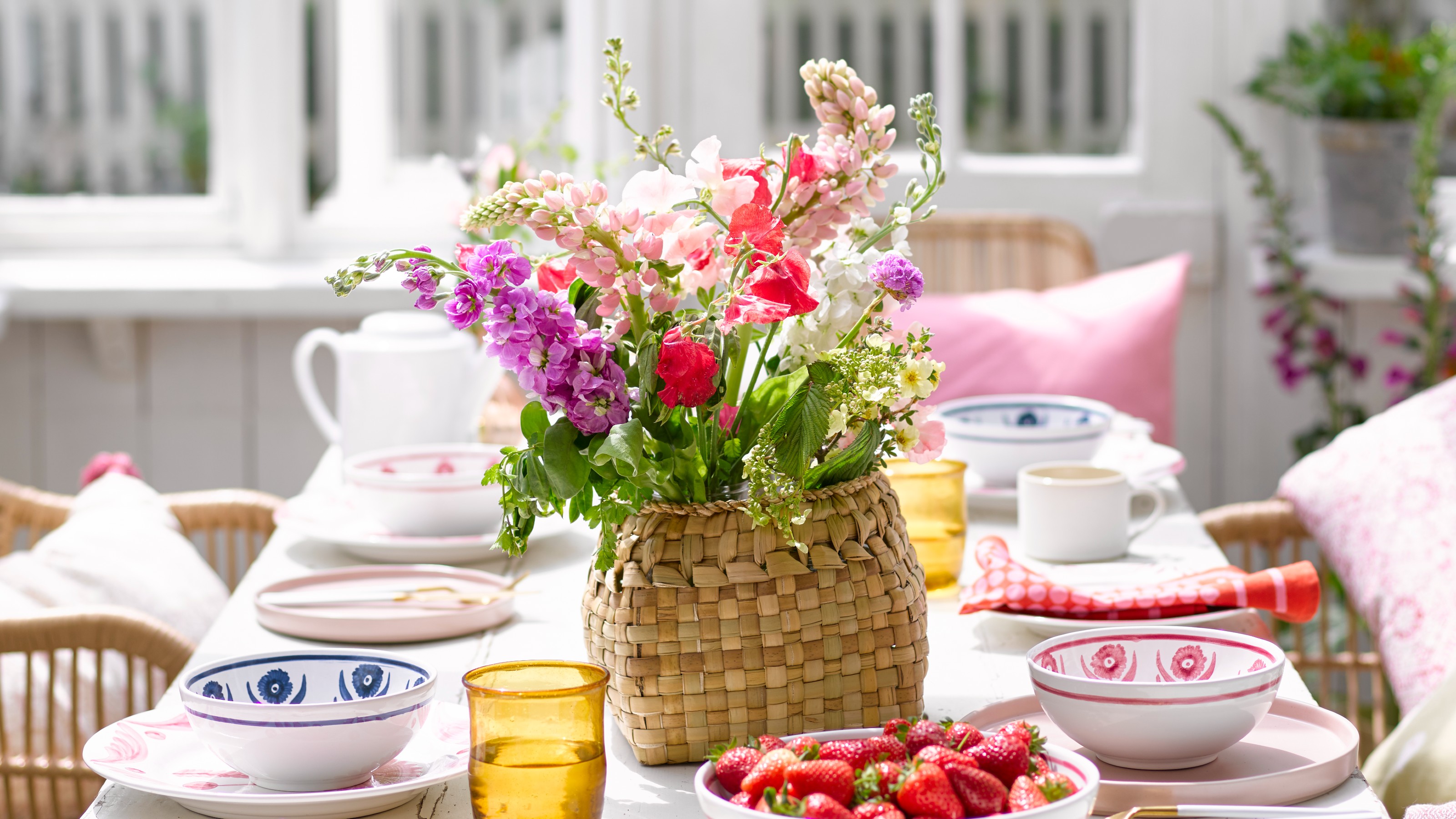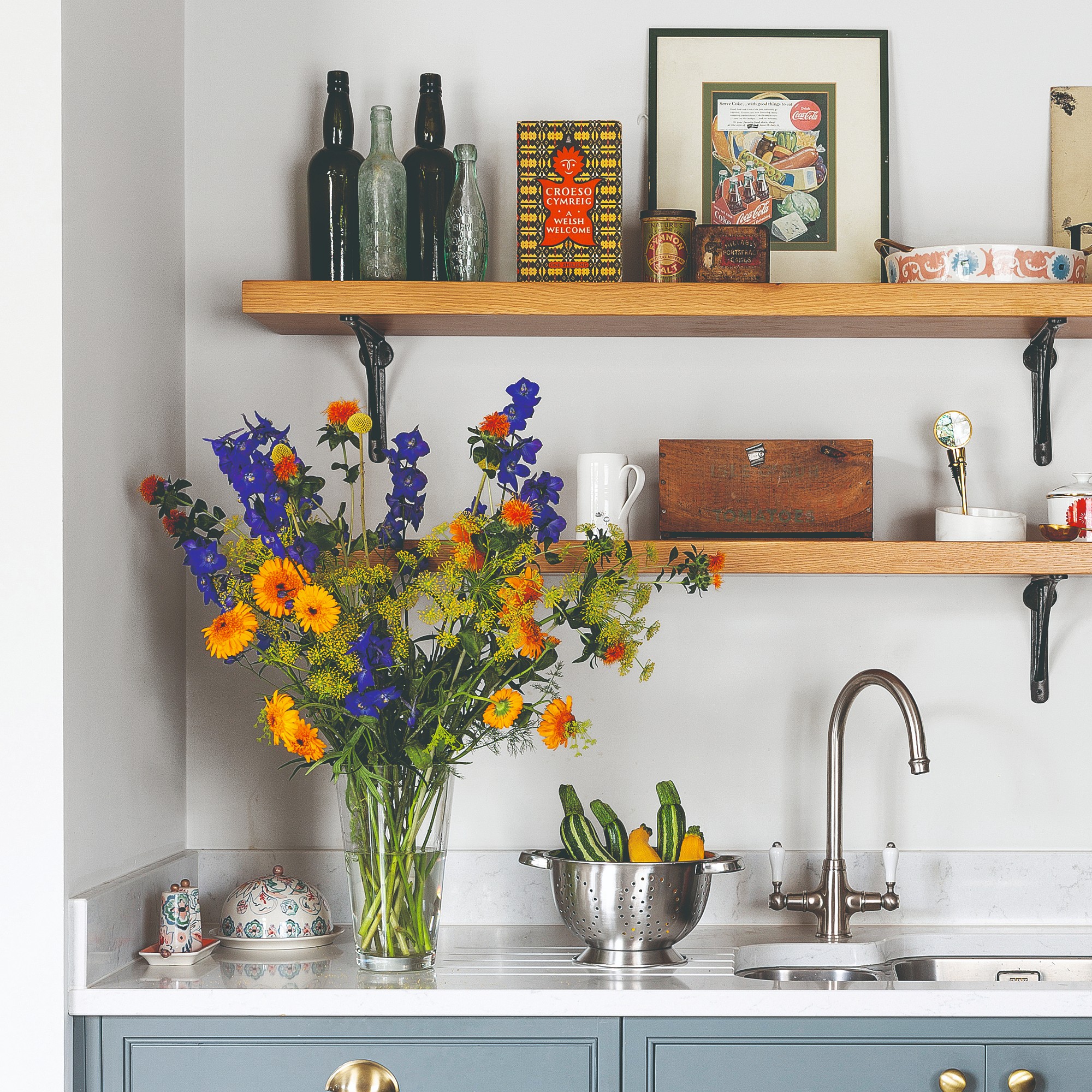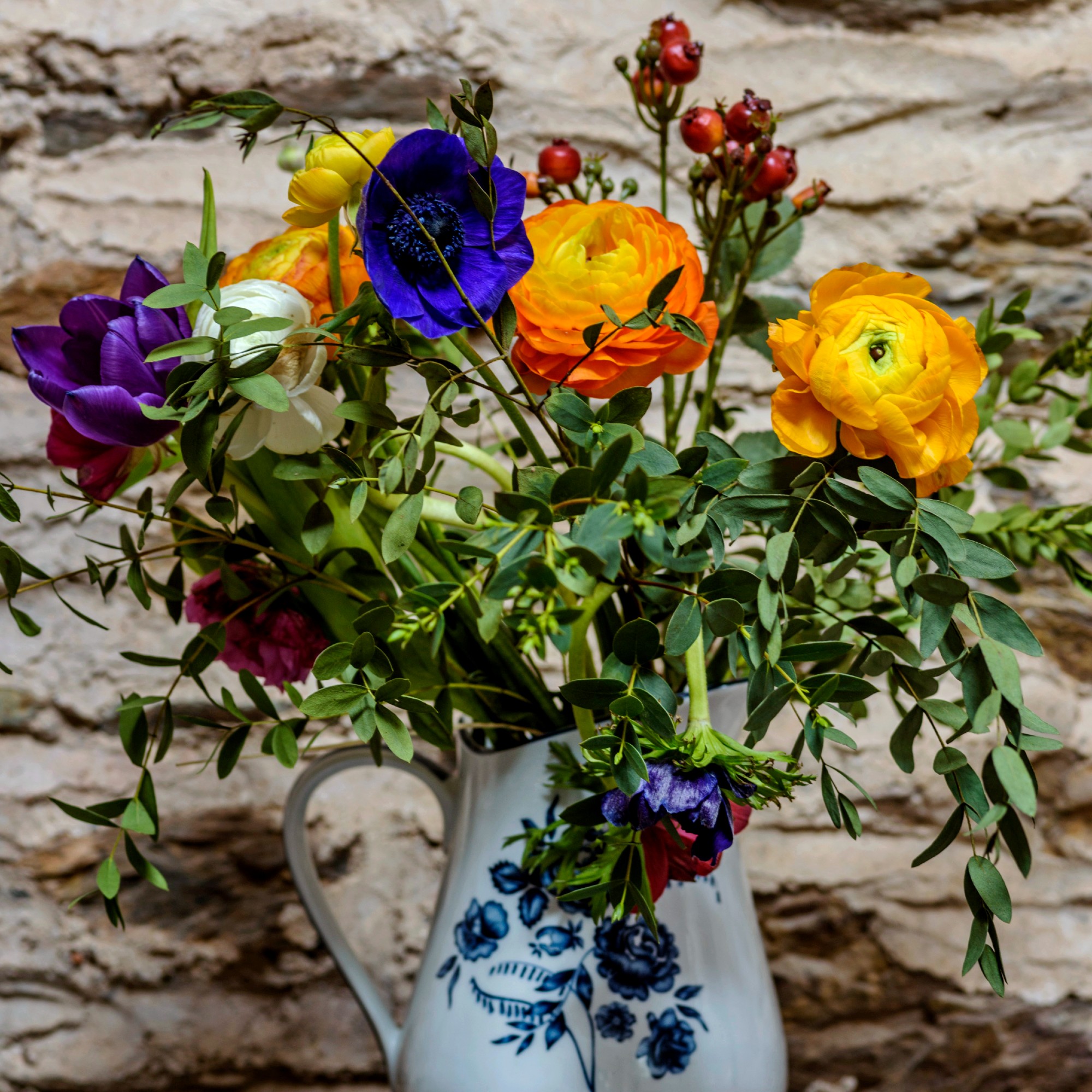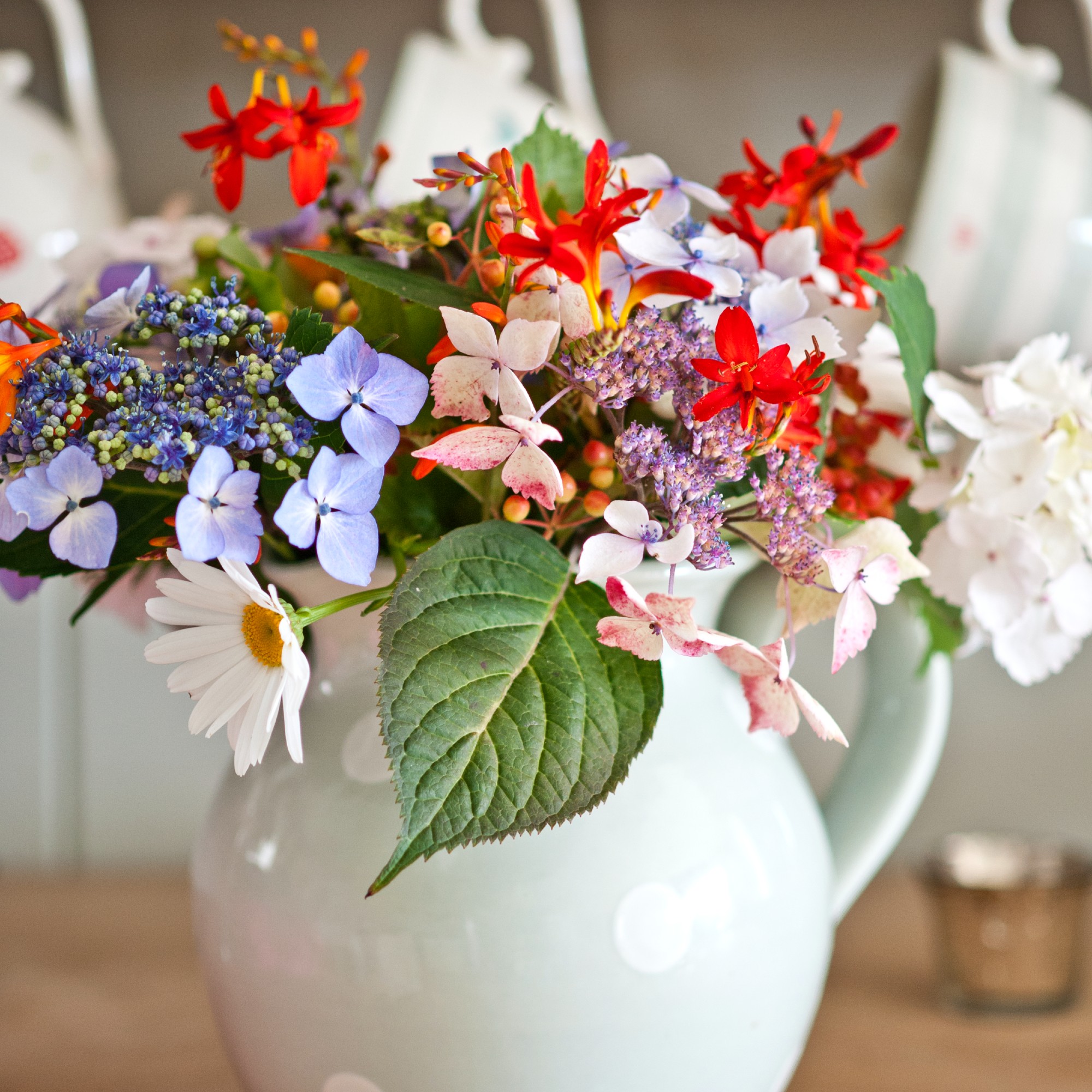This is what professional florists do to perk up droopy cut flowers
Florists share a trade secret about reviving stems not looking their best


Sign up to our newsletter for style inspiration, real homes, project and garden advice and shopping know-how
You are now subscribed
Your newsletter sign-up was successful
We all love a beautiful bunch of flowers or a bouquet. That’s exactly why we’re always in search of ways to make this little luxury last as long as possible. Recently, we were let in on a trade secret how florist pros perk up stems that are already looking a bit droopy – and all it takes to revive your cut flowers is some boiling water.
If a vase of droopy flowers is ruining your tablescaping decor then dipping their stems in just boiled water might be the solution floristry experts reveal.
But tread carefully as this trick is not for every flower variety and prolonged exposure could do more harm than good. So this is everything you need to know to perform this hack successfully without damaging your blooms.

Boiling water hack to revive cut flowers
Social media regularly feeds us hacks to prolong the life of cut flowers, whether it’s using vodka to keep flowers fresh or throwing a 2p coin in the flower vase. If that is the kind of thing you’re into, of course, and the algorithm presents you with such content like it does to us.
But the above probably won’t do much once your stems are already looking sad and droopy. Which is where the hot water just boiled in your best kettle comes in.
‘It’s a lesser-known trick that works wonders,’ says Millie Durbak, brand manager at Prestige Flowers. ‘Immersing the ends of droopy cut flowers in just-boiled water for a brief period can revive them.’

Alex Biggart, brand manager at 123 Flowers, explains how exactly it works, ‘This technique leverages the principle of thermal dynamics, where the heat temporarily increases the permeability of the stems, enabling them to absorb water more readily. When cut flowers begin to droop, it often means that air has entered the stems, blocking water uptake.’
Sign up to our newsletter for style inspiration, real homes, project and garden advice and shopping know-how
‘The hot water technique works by inducing a rapid uptake of water, facilitated by the temperature difference, which helps to force out the air bubbles blocking the stem's water pathways. This rapid uptake rehydrates the plant's cells, causing them to firm up and the flower to stand tall again.’

But you definitely need to get the timing right so that you don’t accidentally ‘cook’ your flowers. ‘The critical component here is timing - the stems should only be exposed to the hot water for around 30 seconds. After the initial shock treatment, flowers should rest in lukewarm or room-temperature water. Ideally, you want to mimic the flowers’ natural conditions as closely as possible, which usually means a cooler environment,’ Millie explains.

And not every flower variety is the right candidate for this technique as some are more sensitive than others. ‘Tough, woody stems like those found on roses or snapdragons can handle the heat without damage, helping them to recover from wilting. However, more delicate flowers with softer stems or those particularly susceptible to heat stress, such as peonies or freesias, might not benefit,’ Alex warns.
But if your flowers are already drooping and not looking their best, it is perhaps worth a try whatever the flower. You never know, it could work even on something as soft-stemmed as a tulip.

Sara Hesikova has been a Content Editor at Ideal Home since June 2024, starting at the title as a News Writer in July 2023. She is now also the Ideal Home Certified Expert in Training on Furniture, and so far has tested over 150 different sofas.
Graduating from London College of Fashion with a bachelor’s degree in fashion journalism in 2016, she got her start in niche fashion and lifestyle magazines like Glass and Alvar as a writer and editor before making the leap into interiors, working with the likes of 91 Magazine and copywriting for luxury bed linen brand Yves Delorme among others.